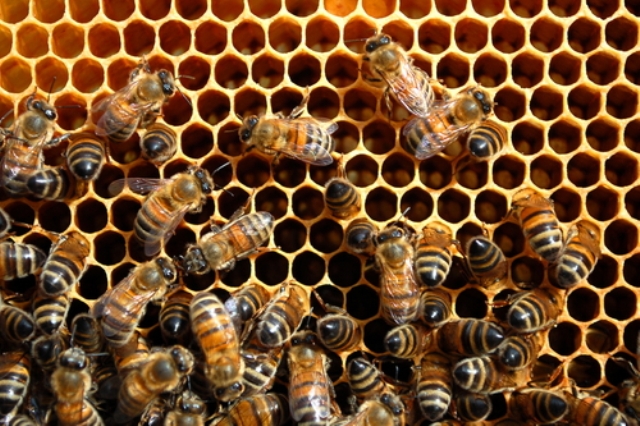USDA To Help Feed Midwestern Honey Bees
By Chuck Sudo in Food on Feb 26, 2014 4:55PM
Honey bees are a vital component of America’s agricultural industry. Honey Bees are used for commercial pollination of crops to the tune of $15 billion annually which is why recent reports of colony collapse disorder (many related to bees gathering nectar and pollen from crops sprayed with insecticides or having rare diseases) have farmers concerned enough to ask for assistance.
Leave it to the USDA to come to the rescue. The agency’s Natural Resource Conservation Service announced Tuesday they would offer $3 million in technical assistance to improve bee health in five Midwestern states: Michigan, Minnesota, Wisconsin, North Dakota and South Dakota. Honey bees are brought to the upper Midwest every summer to gather pollen and nectar, then trucked to California every spring to pollinate myriad crops, from apples, onions, carrots to specialty crops like almonds, cotton and alfalfa.
The USDA hopes the program will help bees build new food stores and gather their strength for the winter months. National Resource Conservation Service director Jason Weller called the initiative “a real shot in the arm” aimed at improving the health of honey bee colonies.
Farmers who qualify for the program will be able to use the funding to plant crops such as alfalfa and clover that are desirable for both bees and livestock, and build better food and water supplies for each.
"It's a win for the livestock guys, and it's a win for the managed honeybee population," Weller said. "And it's a win then for orchardists and other specialty crop producers across the nation because then you're going to have a healthier, more robust bee population that then goes out and helps pollinate important crops."
The five states where the program will focus are where 65 percent of the nation’s commercial beekeepers bring their hives every summer.
